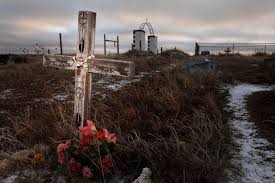Blessed are those who mourn, for they will be comforted (Matthew 5:4).
Even before we face deaths and major losses that rip the fabric of our lives, grief weaves itself into the warp and woof. At birth, we lose the comfort of the womb. As we grow up, we lose innocence. As we make our first adult decisions and commitments, we leave dreams behind.
So when a loved one dies, unemployment intrudes, or divorce divides, we don’t face it utterly unprepared. We can marshal skills and perspectives gained in life’s normal losses and put them to work on the harder stuff. The faith that sustains, the habits that give resilience, the attitudes that energize come to bear.
As a therapist, I listen for grieving patients’ resilience skills. Then I suggest how to put them to work without having to change. Furthermore, understanding normal grief can help them see that their anger, searching for the deceased, pining, and feeling overwhelmed do not make them crazy, just human.
However, focusing only on normal grief faces a major limitation. It suggests that everything that happens in grief and recovery comes down to processes as natural and functional as digestion. Meanwhile, the bereaved person knows that something much more significant happened. It does not just seem like the whole world changed. It really did.
Normal grief is one thing, sacred grief another. The bereaved person’s sense of something more springs from a sound spiritual intuition.
Sacred grief emerges from the fundamental change in reality that comes with significant losses. Sometimes those losses kidnap the god you thought was real and leave you vulnerable in an open field awaiting the true God. Sometimes those events interject God into the center of your story, rearranging everything and redirecting your life’s course. Burning bushes and still, small voices do that. But so does the cancer diagnosis, discovery of the affair, or the unexpected meeting with the boss.
The human sciences have no trouble with the notion that the creature that bites is a dog, but they feel they must explain away the idea that the presence that heals is God. If I help my patients function better and normalize their natural feelings, I do well. Yet, if stop there, I diminish their experience of sacred grief and stand in the way of God’s invitation to meet on holy ground.
Some lose their religion on sacred ground, while others find it. But whether they know it or not, standing there when the crisis occurs makes them sacred themselves, joins them with Jesus crying out from the cross, “My God, my God, why have you forsaken me?”
As their helper, I must not settle for making it all seem natural. I must honor their sacred grief by admitting that I don’t fully understand and by listening to their pain with reverence. Such reverence converts therapy into worship, and where worship happens, hope emerges that God, not the counselor, will do something new.
Related Posts
Coronavirus and Your Spiritual Life: More Than Coping


0 Comments